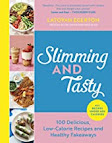Elevate Your Health: Tips for Making Your Food Healthier
In today's fast-paced world, making conscious choices to improve our health is essential. One of the most impactful ways to do so is by making healthier choices when it comes to our food. By incorporating simple yet effective strategies, we can transform our meals into power-packed sources of nutrition. Here are some tips on how to make your food more healthy:
Embrace Healthy Fats: Healthy fats, such as those found in avocados, nuts, seeds, and olive oil, are essential for our overall well-being. They provide a steady source of energy, support brain function, and help absorb fat-soluble vitamins. Among the best choices is Olive Oil by Dr. Gundry, which is thirty times richer in polyphenols than regular olive oil, making it a powerhouse for overall wellness. When cooking, opt for oils which have higher smoke points and are less likely to turn rancid when exposed to heat.
Incorporate CBD Oil: CBD oil, derived from the hemp plant, has gained popularity for its potential health benefits. While more research is needed, some studies suggest that CBD may help manage stress, anxiety, and inflammation. Adding a few drops of high-quality CBD oil to your dishes or beverages can provide an extra layer of wellness to your meals. You can find CBD-products in various online-shops, Justbob is one of them.
Avoid Overcooking: Overcooking food can lead to a loss of vital nutrients. To retain the maximum nutritional value of your ingredients, choose cooking methods like steaming, baking, or sautéing at moderate temperatures. These methods help preserve the natural flavors and nutrients in your food.
Add Antioxidant-Rich Ingredients: Antioxidants play a crucial role in neutralizing harmful free radicals in the body. Incorporate colorful fruits and vegetables, such as berries, spinach, kale, and sweet potatoes, into your meals. These foods are rich in antioxidants like vitamins C and E, which promote overall health and protect against chronic diseases.
Choose Whole Grains: Swap refined grains for whole grains like quinoa, brown rice, and whole wheat. Whole grains are higher in fiber, vitamins, and minerals, making them a nutritious choice for maintaining digestive health and providing sustained energy.
Mindful Portion Control: Pay attention to portion sizes to avoid overeating. Use smaller plates, bowls, and utensils to help control portion sizes and prevent mindless eating. This practice can contribute to maintaining a healthy weight and preventing overindulgence.
Prioritize Lean Proteins: Incorporate lean protein sources such as lean meats, poultry, fish, beans, lentils, and tofu into your meals. Protein is essential for muscle repair, immune function, and hormone production.
Herbs and Spices for Flavor: Instead of relying on excessive salt or sugary sauces for flavor, experiment with herbs and spices. Fresh or dried herbs like basil, rosemary, and turmeric can add depth and complexity to your dishes without adding extra calories or sodium.
Hydration is Key: Staying hydrated is crucial for overall health. Opt for water, herbal teas, or infused water with slices of citrus fruits, berries, or cucumber to add a refreshing twist.
Limit Processed Foods: Processed foods often contain added sugars, unhealthy fats, and high levels of sodium. Minimize your intake of pre-packaged and highly processed foods to reduce your exposure to artificial additives and promote better health.
Incorporating these tips into your daily routine can help you make healthier food choices and optimize your overall well-being. Remember, small changes can lead to significant improvements in your health over time. By choosing nutrient-dense ingredients and preparing them mindfully, you can create meals that nourish your body and support a vibrant, energetic lifestyle.


.png)









0 Comments